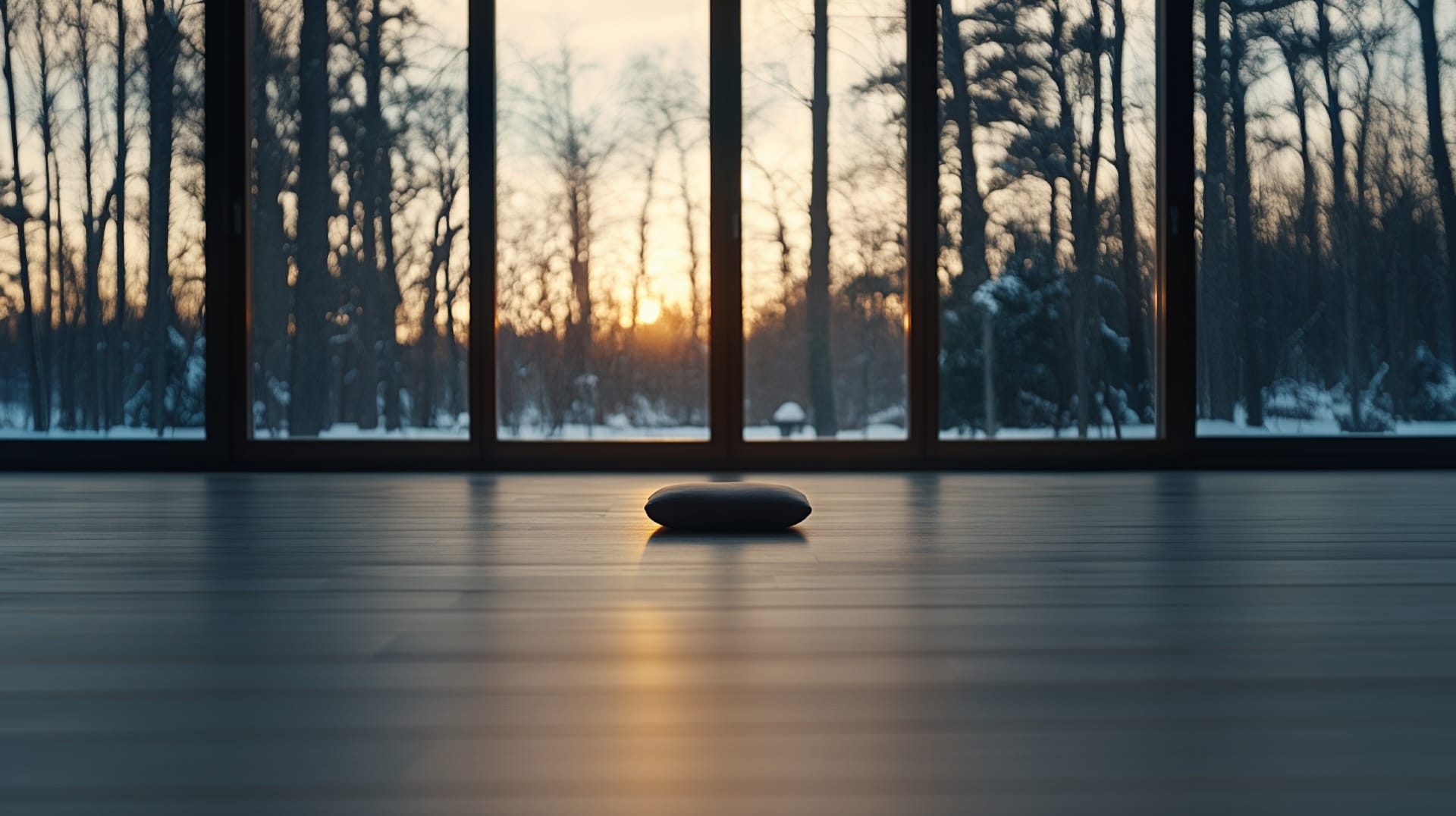Welcome to the weekly insights for Sunday, the 12th of October.
I post a Weekly Insights article each week. Each article is a roundup of the insights that I've posted the previous week across all my social media platforms. Each insight is a micro-learning post that teaches something useful in the domain of mindfulness, meditation, and resilience.
Weekly Insights For This Week
- What Changes with Meditation - 3. Perspective.
- What Changes with Meditation - 4. Focus.
- Wu Wei - The Daoist Art of Acting in Harmony with Nature.
- A Solution to Negativity Bias.
- One-time codes for sign-in.
Only Calmness can bring Focus:
- Be aware if the mind is restless
- Refocus on the present moment
- Relax stress and tension with the breath
- Release unhelpful thoughts with the breath
- Guide the mind to a constructive focus
- Remain sensitive to the mind and body
- Repeat
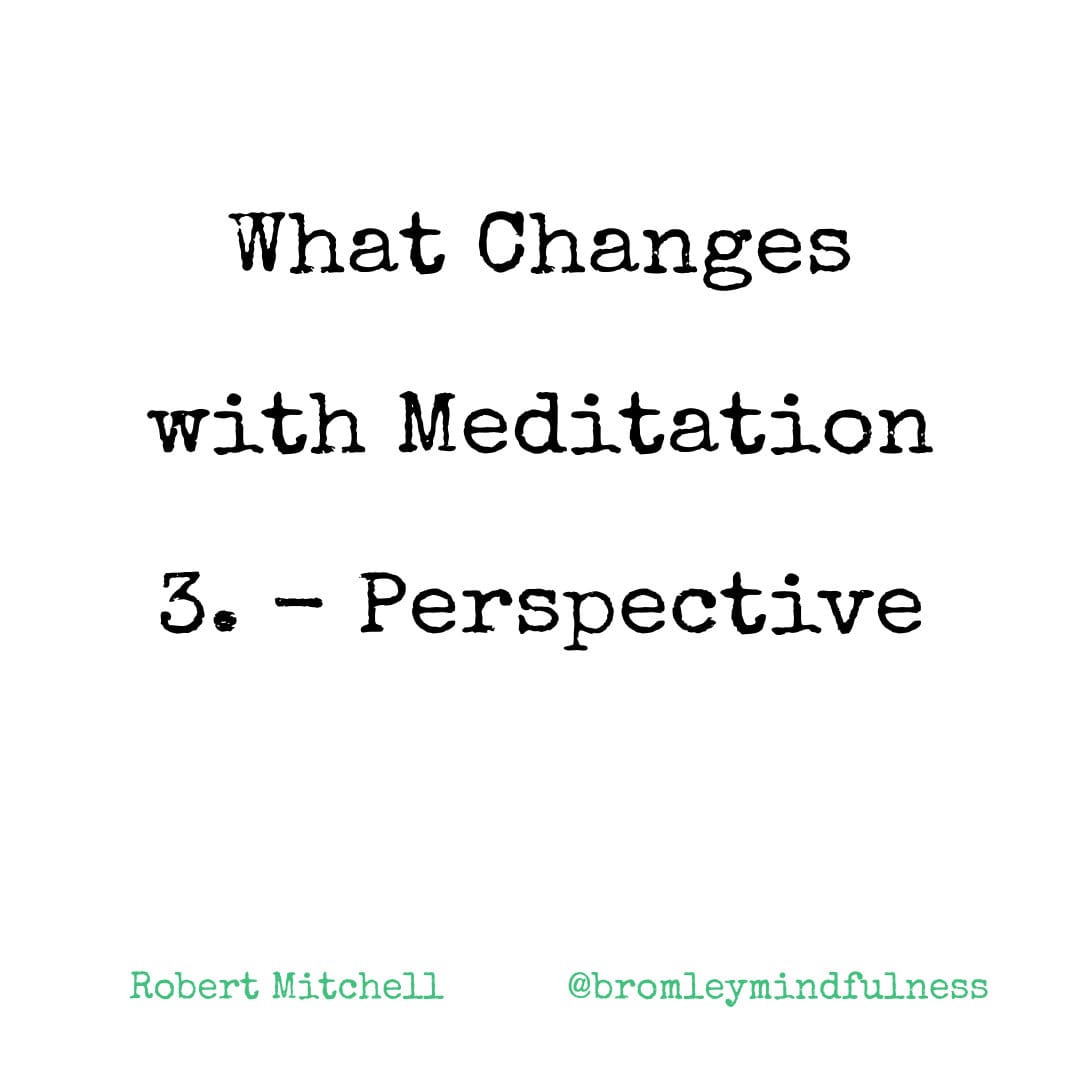
Meditation changes how we see ourselves, others and our relationship to others.
Imagine standing in a valley. From where you are, certain things are visible, others hidden. Move a few steps, and what you see changes completely. This is perspective—not just how you think about things, but what literally comes into view.
In modern life, we're caught on a hamster wheel—always getting through this moment to reach the next. Everything becomes an obstacle to get past. Walking down Bromley High Street, your awareness can be miles away because you know the route. But visit a medieval Tuscan village, and suddenly you're forced into the present moment. Everything is new. You have to pay attention.
We know this. It's why holidays work. It's why we say, "I need to get away to think." The worries have become so embedded that we need distance from our daily lives to see clearly.
You don't need weeks in Tuscany. Once you have experienced the present moment without the baggage of mental narratives, you will always be able to find it.
- Mindfulness — Being in the present moment and witnessing it
- Appreciation — Spending time with something neutral (like watching clouds)
- Gratitude — Realising that you can do this
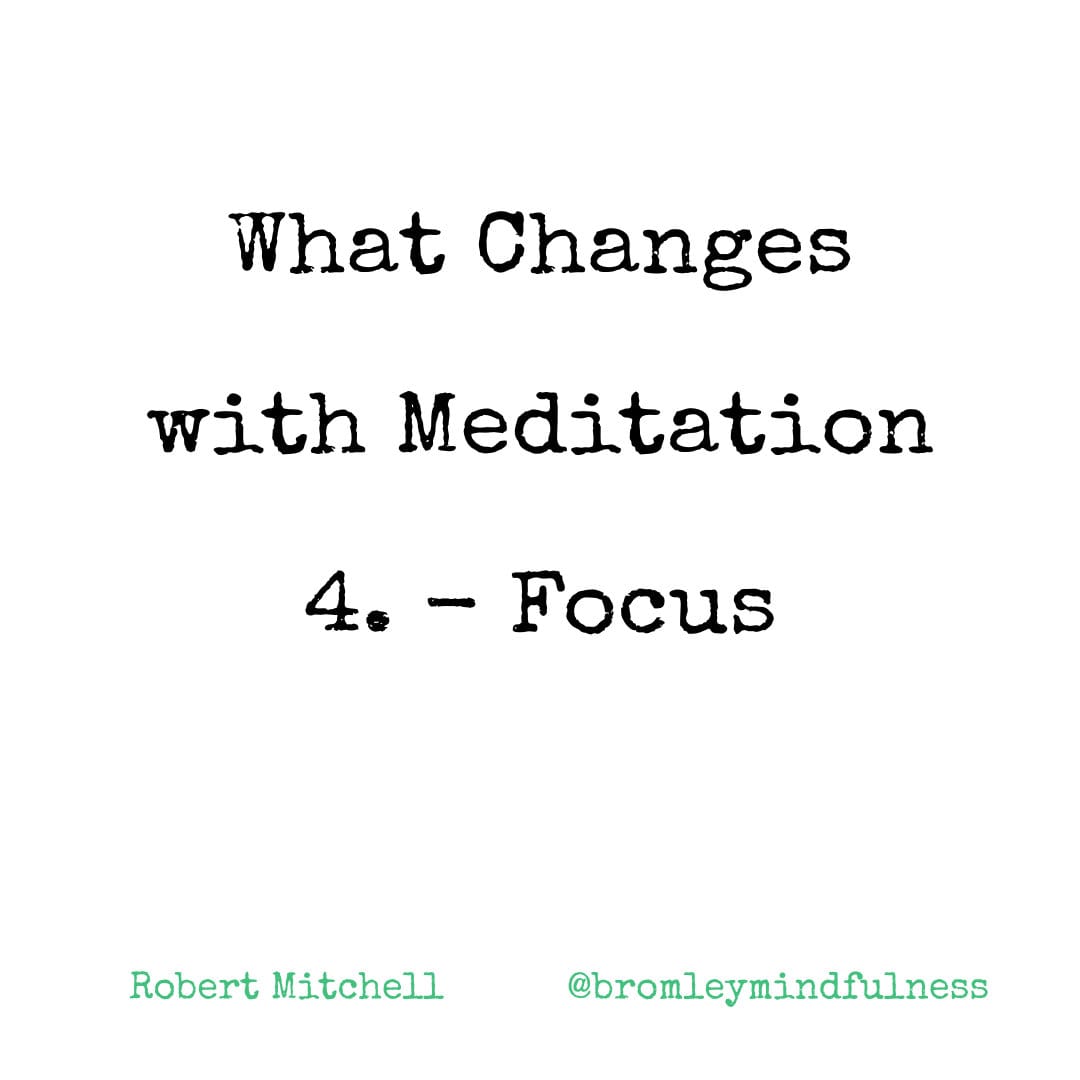
It could be said that every meditation is a focus training exercise
You could say that every meditation is a focus meditation, but when I read or learn about meditation online, the focus part of meditation is only seen as a means to an end rather than an actual benefit of practising meditation.
Whatever we spend time practising, we get better at. When we spend hours every week practising focus, our ability to focus improves.
A big part of these focus exercises is learning how to calm the mind and relax. We bring our focus to mental and physical experiences and over time, learn to take back control from our busy minds.
We become aware of the state of our minds and bodies and can direct our attention to wherever it is most useful and helpful to neutralise unhelpful thoughts, distractions and uncomfortable feelings.
All we need to experience this is to remain patient and continue our meditation practices.
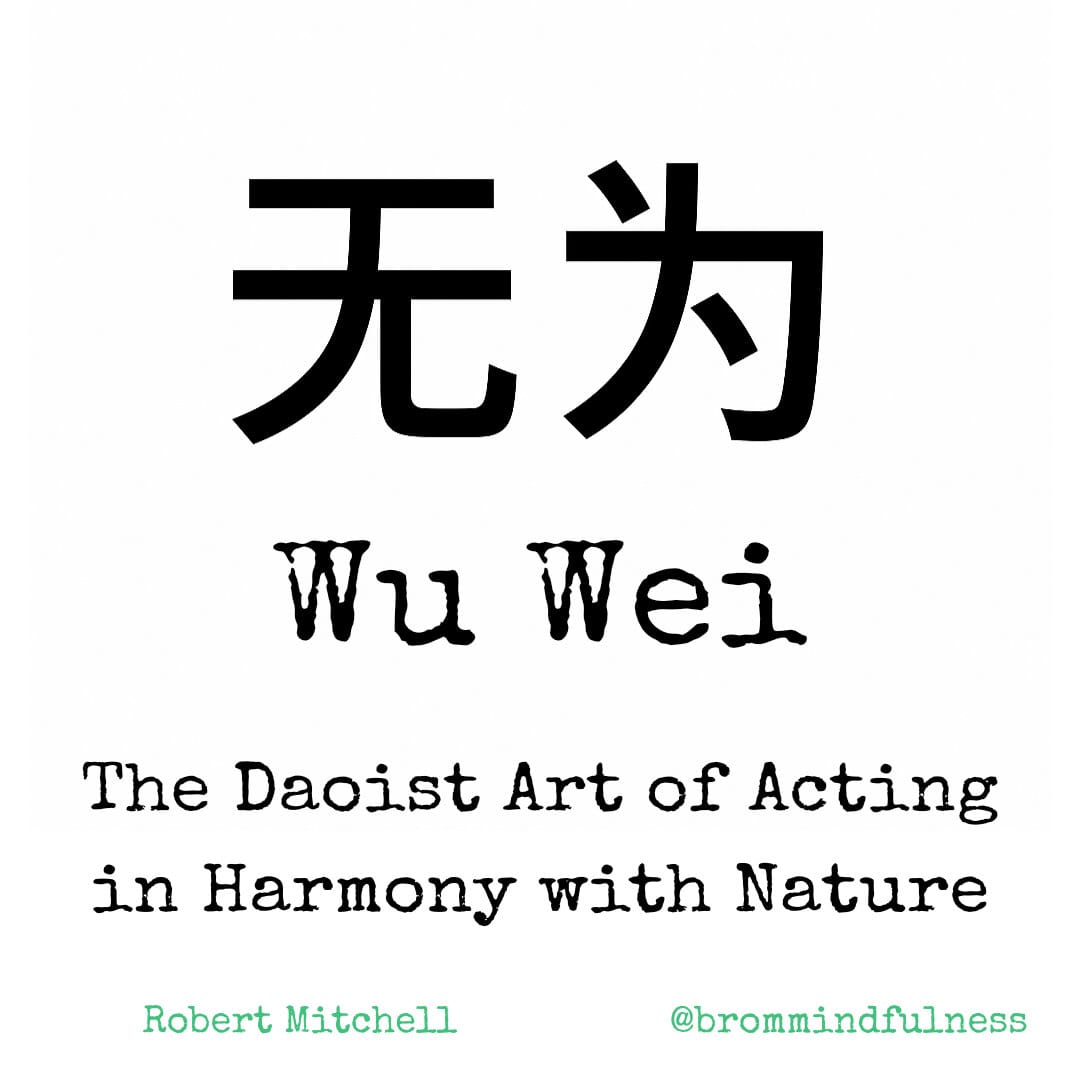
Learn about the ancient skill of aligning ourselves with the forces of nature
Why would a concept like Wu Wei matter to meditators?
Wu Wei (无为) describes an experience where actions flow naturally, without unnecessary struggle or resistance. We align ourselves with the flow of nature and the change that is already occurring rather than try to impose our will on the world with force.
Many Eastern philosophies place meditation at their centre. Meditation has both shaped and been shaped by the Eastern traditions and also cultural ideas about how to live. Concepts like Wu Wei developed in this environment. Wu Wei carries within it the insights of meditative experience about presence, letting go, and moving with rather than against the flow of life.
We can use the concept of Wu Wei to help us build, grow, and maintain an effective meditation practice in a world of stress, time pressure, and distraction.
Daoism ( or Taoism) is an ancient Chinese wisdom tradition. Its core concepts originated in a book written over 2,000 years ago called The Dao De Jing by Lao Tzu.
Dao (Tao) means "the Way." The Dao is understood as the natural order of the universe--the underlying flow of life that cannot be fully explained but can be experienced.
Daoism focuses on living in harmony with the flow of life. Rather than changing something, we learn how to act in alignment with what already is.
I have developed a training framework founded on Wu Wei, which integrates our meditations into our daily lives. I call it The Frictionless Way.
I will run a series of posts on The Frictionless Way on social media, and I will publish them as part of my weekly insights, so remember to tune in.
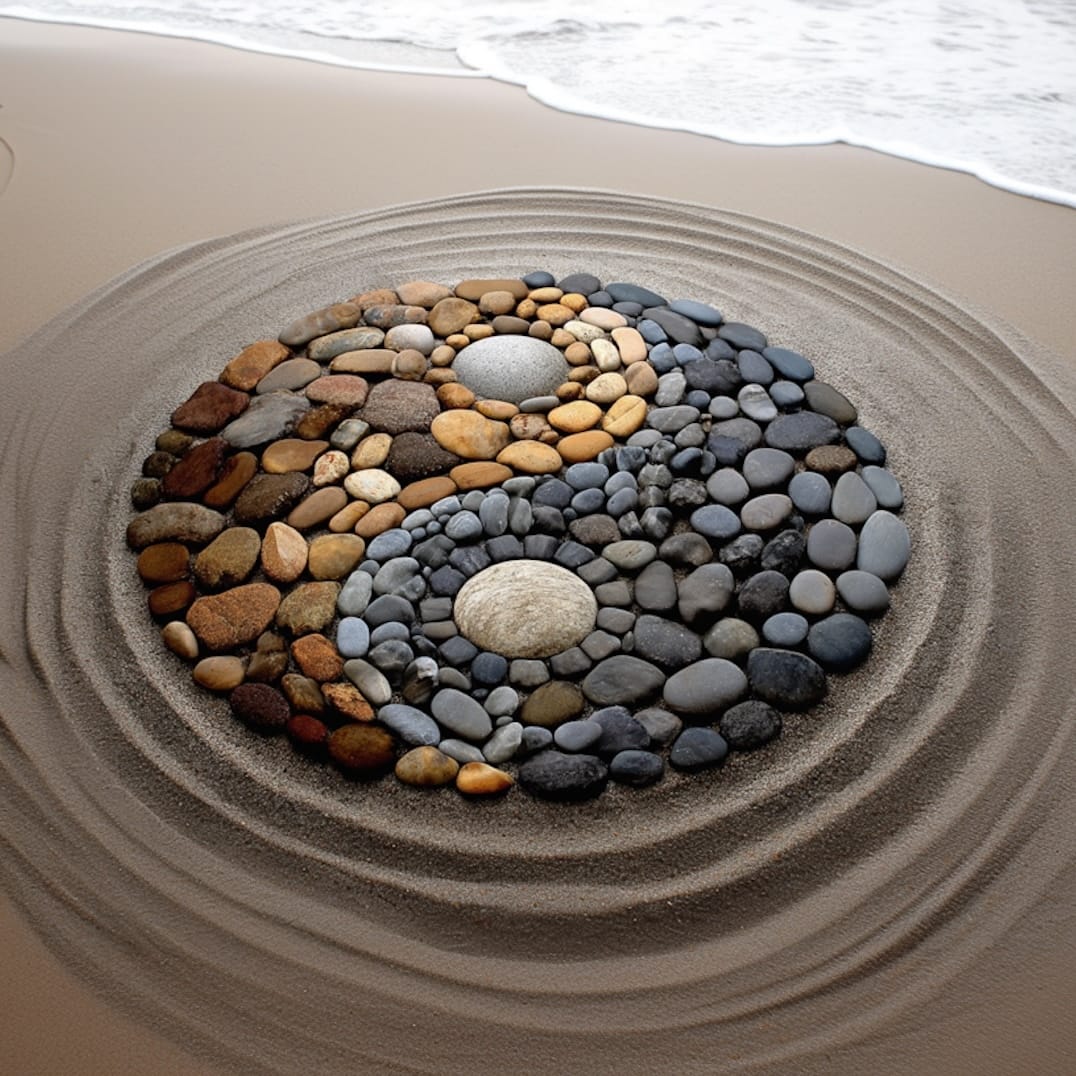
Overcoming Negativity Bias
Have you ever noticed how your mind replays awkward moments from the past and seems to forget that beautiful beach or sunset?
That is negativity bias—a survival mechanism that helps us focus on threats but can also keep us stuck in repetitive, unhelpful thought patterns.
The problem: Your brain prioritises threats over rewards, which is a survival trait. The media exploits this, creating an endless conveyor belt of negativity. This can deflate our mood and make us even more aware of the difficulties of our own day-to-day lives.
There is a two-step solution:
1. Labelling Thoughts 💭
- Find a single point of focus, which could be anything from the breath to a single point that you can see to the passage of sound through time.
- Notice when your mind has wandered.
- Label the experience by repeating in the mind: “Thinking, thinking”.
2. Cultivate appreciation ✨
- Actively notice moments you appreciate: clouds, textures, everyday beauty.
- Add it to your "three good things" to train your subconscious to become more aware of the joy in small moments and experiences.
- Repeat. The more you look, the more you find.
The result is that you build equanimity—experiencing life's ups and downs as a natural cycle rather than as extreme events.
Easier sign-in for subscribers
In addition to the magic link sign-in, I have now added, through the wonder of Ghost, our fantastic platform, one-time code sign-in.
Click below to learn all about it.

